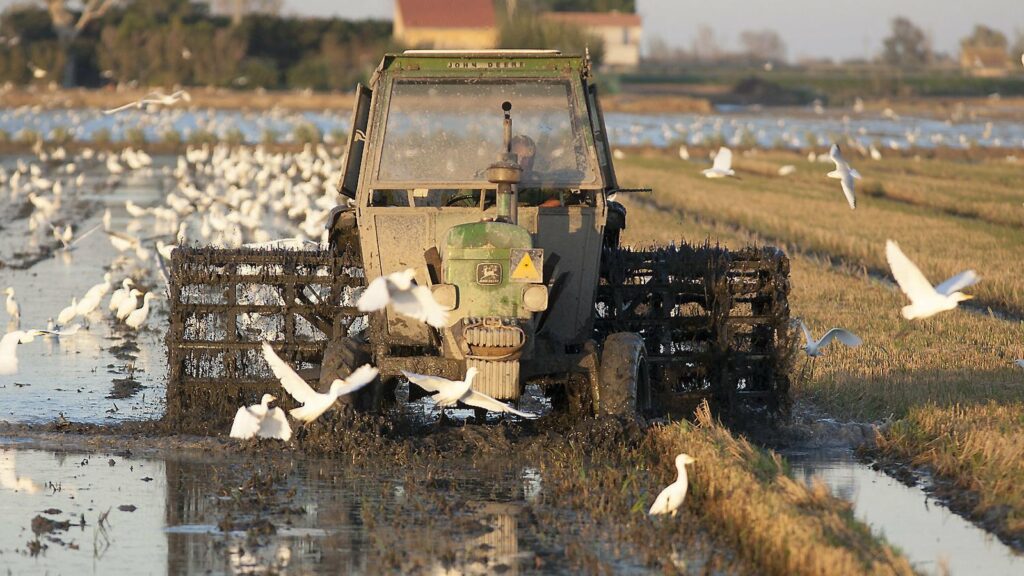Navigating the Dance of Society and Environment: My Sociological Odyssey
I am a Valencian sociologist passionate about unraveling the intricate relationship between society and the environment. In my work, I employ diverse qualitative and quantitative techniques to delve into various aspects of environmentalism and strive to understand how we can achieve environmental sustainability on our finite planet.
My research has taken me on a journey through various forms of environmentalism, and through that exploration, I’ve grappled with questions of environmental justice, colonization, sustainability indicators, economic growth, and public opinion on environmental issues. One of my recent endeavours, published in Sustainability Science alongside my esteemed colleagues Judith Krauss and Andrea Jiménez, shed light on how data can conceal ongoing colonization dynamics in the realm of environmental governance.
In collaboration with Dan Brockington, I’ve also co-authored an eye-opening article for the Journal of Political Ecology. This article exposes the theoretical and epistemological assumptions underpinning the most influential international sustainability indexes and indicators. We’ve unveiled how some of these measures can obscure the material roots of prosperity and the ecological distributional conflicts that are often exported to the global South by the global North. The implication is clear: we must decolonise environmental governance indices and indicators to address these injustices.
In the realm of conservation, I’ve contributed to a paper published in Geoforum, led by my colleague Elia Apostolopoulou. Our extensive review of neoliberal conservation literature highlighted critical gaps, including a dominance of Global North scholarship in a field predominantly focused on the Global South. We’ve also underscored the limited engagement with social movements and grassroots activism and the lack of attention to the dynamics of class, gender, and race.
My research doesn’t stop there. My colleague Pau Belda and I have challenged the Green Growth Hypothesis and the Environmental Kuznets Curve. Contrary to popular belief, we’ve found that technical advancements alone do not lead to an absolute decoupling of economic growth from resource consumption. Our analysis spanning 1970–2019 has shown that the dynamics of the construction sector, influenced by housing prices, play a pivotal role in this narrative.
While my quantitative pursuits have been instrumental, I haven’t abandoned my qualitative roots. During my PhD research, I delved into social representations of the environment and the discourse surrounding two protected areas: Natural Park of Albufera de València and Delta de l’Ebre Natural Park. The thesis critically examines the concept of “Parque Natural” (Natural Park) as a neoliberal solution to reconcile economic development with environmental preservation. Adopting agrarian sociology and political ecology as theoretical paradigms, the study explores the social representations and environmental discourses surrounding these wetland regions, both of which are heavily influenced by rice cultivation. Through qualitative methodologies such as discussion groups and interviews, the research identifies dominant ideological positions regarding environmental modernization and sheds light on ecological and social conflicts, particularly within Natural Parks. Some of this research made its way into Conservation & Society and Environment and Planning E: Nature and Space.

Parc Natural del Delta de L’Ebre, Catalonia.
Although much of my work centres on environmental studies, I’ve also explored rural and agrarian subjects using both quantitative and qualitative methodologies. One of my latest papers delves into the Agrarian Question, focusing on dairy farms in the European Union. We’ve uncovered surprising insights about smaller farms’ profitability and their challenges. However, despite this, empirical evidence highlights the diminishing presence of small dairy farms. This phenomenon is attributed to the fact that, when accounting for subsidies, larger farms with more cows ultimately prove to be more profitable than their smaller counterparts.
In another study published in Sociologia Ruralis, we have delved into the crisis and ‘double bind’ situation experienced by Catalan dairy farmers. They grapple with contradictory commands to increase production while protecting the environment, highlighting the complexities of their livelihoods. On one hand, they are pressured to increase production to secure their livelihoods amid a socioeconomic crisis, while on the other hand, they are urged to reduce production to protect the environment. The article explores the socioeconomic challenges farmers encounter and analyzes their discourse on this contradictory issue. It ultimately suggests that the key to escaping this paradox lies in farmers establishing a collective consciousness and uniting their interests, possibly through producer cooperatives, albeit recognizing the challenges on this path towards autonomy within the industry.
My work in the CONDJUST Project will join various aspects of the research that I have been doing until now. At bottom I am concerned with the lived realities of rural people, with the way in which these are represented, and with coming up with realistic and effective ways of depicting our current environmental crises and tackling it. Those concerns have animated all my work to date – a long with a fierce passion to tackle new methods, data and sources and understand, intimately, their construction and anatomy. This is why I am enthusiastic about the CONDJUST project as it gives full vent to these driving forces.
Most specifically I am looking at the limitations and discrepancies inherent in agroeconomic models which are deployed in the context of guiding conservation priorities. I want to know how their framing and workings may introduce systematic error and bias into the representation of rural lives and economies. Secondarily, the project strives to extend and change the assumptions of these agroeconomic models, emphasising mitigating the issues that underlie inequitable and unjust delineations of conservation prioritization strategies.